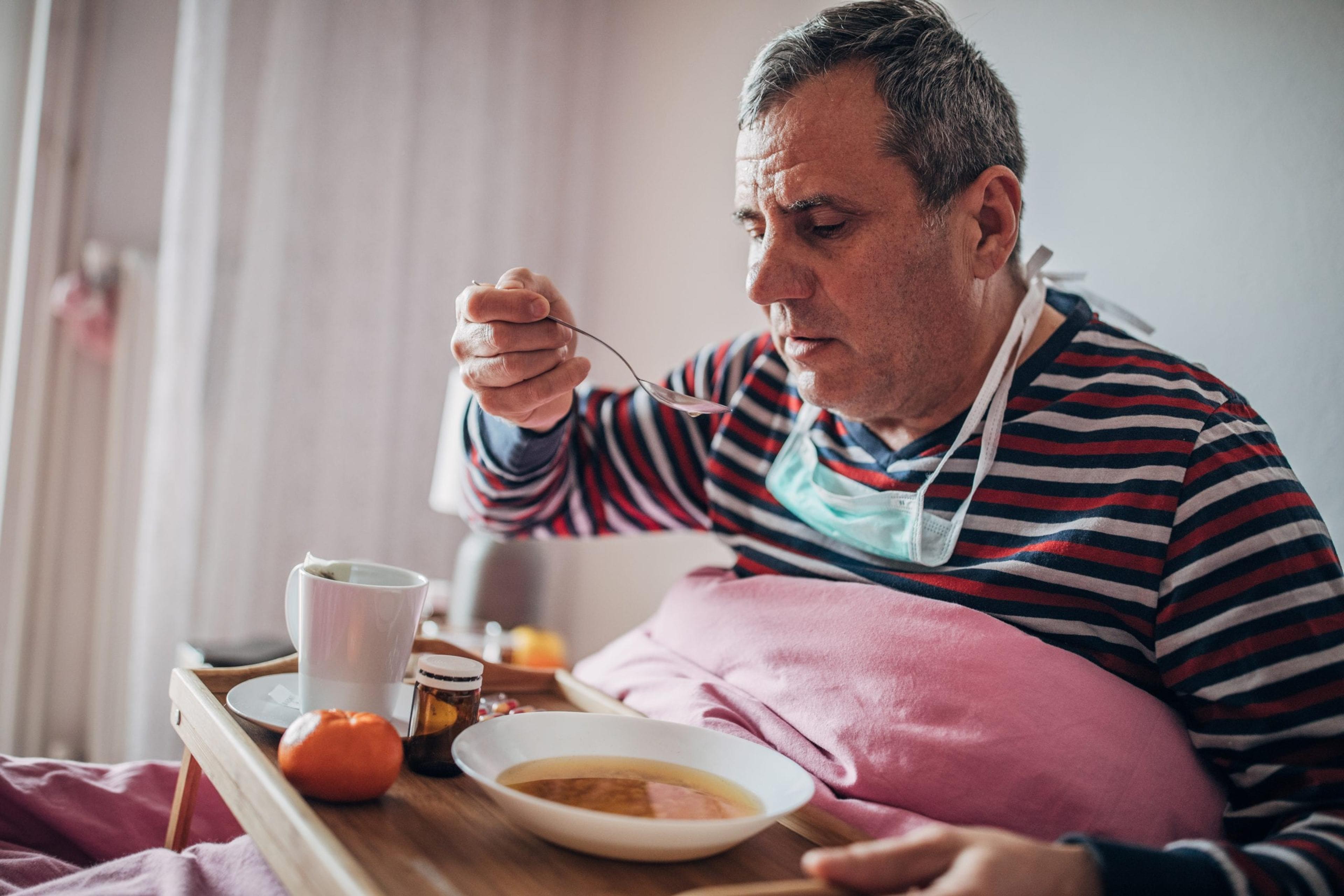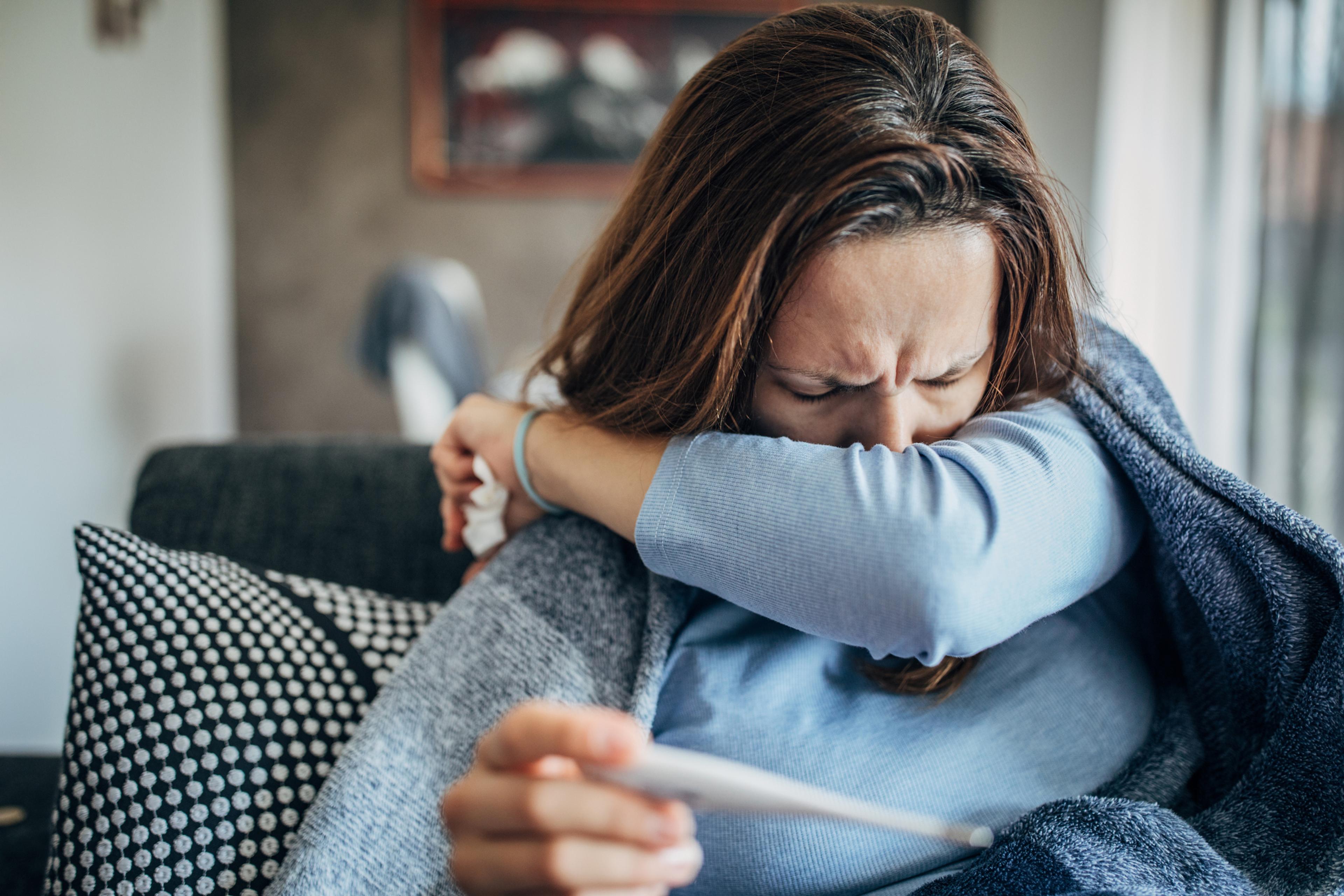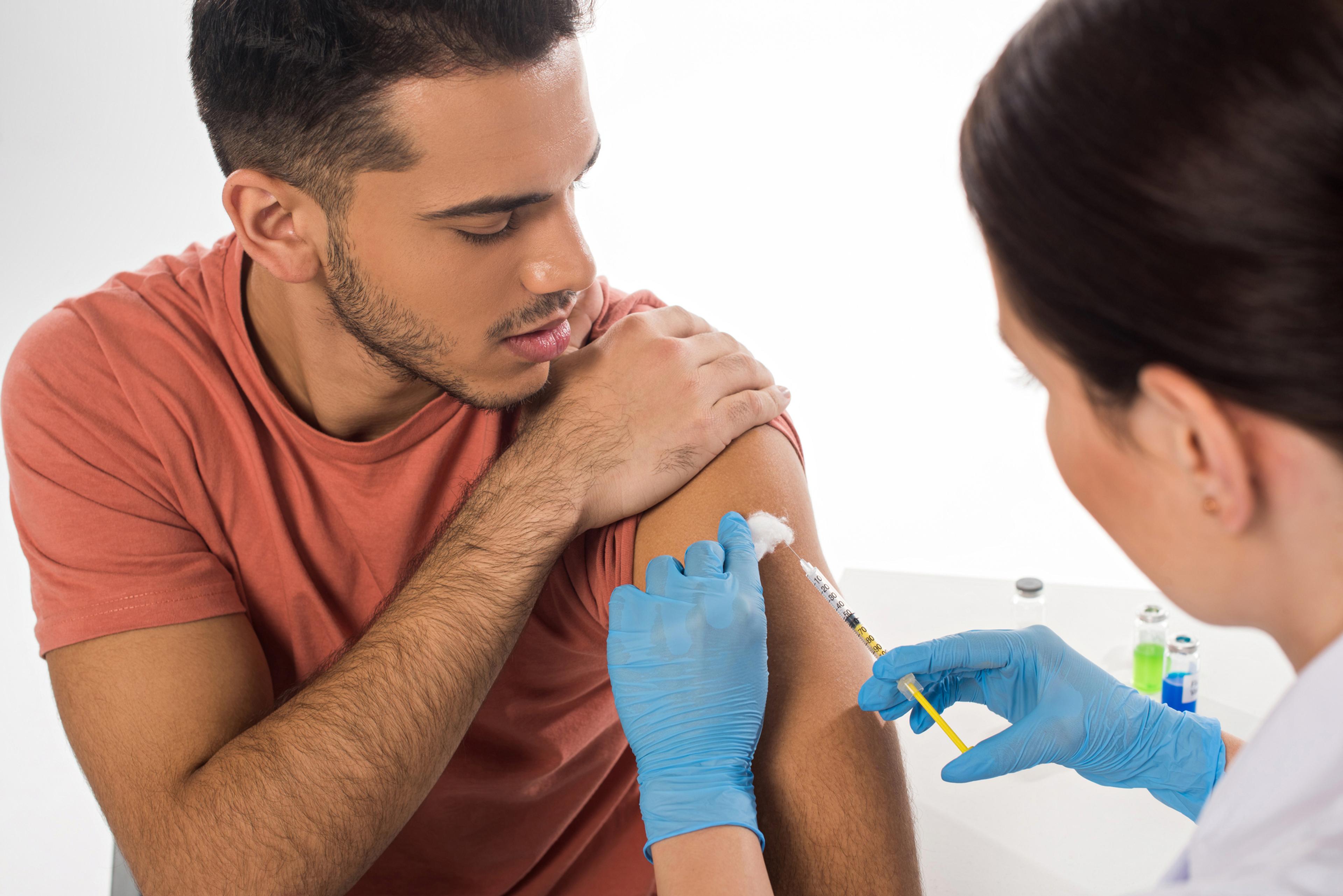4 Things to Include in a COVID-19 Care Kit
Amy Barczy
| 3 min read
Amy Barczy is a former brand journalist who authored content at Blue Cross Blue Shield of Michigan. Prior to her time at Blue Cross from 2019-2024, she was a statewide news reporter for MLive.com. She has a decade of storytelling experience in local news media markets including Lansing, Grand Rapids, Holland, Ann Arbor and Port Huron.

Most people who become ill from COVID-19 do not need to be hospitalized and instead are able to recover at home. You may want to consider having a care kit fully stocked and ready to go if you or someone else in your home become sick from with COVID-19. The Centers for Disease Control and Prevention especially urge those at a higher risk for severe illness from COVID-19 to stock up on supplies and medications. The virus that causes COVID-19 is mainly spread when the respiratory droplets from an infected person’s coughs or sneezes land on the mouths and noses of people nearby and may be inhaled into the lungs. The CDC advises some COVID-19 infections can occur via airborne transmission through “exposure to virus in small droplets and particles that can linger in the air for minutes to hours,” and COVID-19 spreads less commonly through touching a contaminated surface. For someone sick with COVID-19, there may be days of fever, fatigue, headaches, coughs, chills, loss of taste and smell, and more. If you live in a household with multiple people, consider how you will isolate the sick person in order to keep everyone else healthy. If possible, the sick person should use a separate bedroom and bathroom. If you have to share space, ensure the room has good air flow by opening a window and wearing masks. The CDC recommends the sick person should clean their own space if possible. You likely already have these items in your home that will be helpful in the event of a COVID-19 sickness:
- Prescription medications
- Over the counter medications to help with pain relief, coughing and sore throat
- Electrolyte drinks like Pedialyte and Gatorade
- Face masks
- Disposable gloves
- Shelf-stable foods that are easy to prepare
- Personal hygiene items
- Household cleaning and sanitizing products
- List of emergency contacts and important phone numbers
Here are four helpful additions to consider adding to a care kit:
1. Thermometer
Fever is a common COVID-19 symptom, and some COVID-19 patients have reported multiple days of fevers. Monitoring your temperature is an important measure of how your illness is progressing. Should you provide care to a sick person with COVID-19, consider purchasing a contactless, infrared thermometer to limit your contact with the sick person. Fever spikes – especially in older adults – are a warning sign and can warrant emergency medical care.
2. Pulse Oximeter
A pulse oximeter measures the level of oxygen in your blood. A pulse oximeter us a device that clips onto your finger to measure how much oxygen is saturated in your blood, and your heart rate. Some smartwatches also have this capability. During a respiratory illness like COVID-19, your ability to fully supply your bloodstream with oxygen may be compromised. Tracking blood oxygen levels is most beneficial for people with COVID-19 symptoms like cough, fever and shortness of breath to help patients and caregivers monitor if their condition is worsening or improving.
3. Notebook
A notebook or other mechanism to track symptoms, medications, temperature and pulse oximeter readings is helpful, especially if it’s necessary to consult with a health care professional about the illness.
4. Bell
If you live in a household with multiple people and must isolate a sick person, consider how that isolated person will communicate with a caregiver. A bell or other device is handy in the event the sick person needs immediate help. If someone has increasing shortness of breath, persistent pain or pressure in the chest, new confusion or inability to wake up, or bluish lips or face, these are emergency warning signs. Seek emergency medical help right away. If you found this article helpful, you may also like:
- COVID-19 Home Cleaning Checklist
- Coronavirus Supply List: How to Prepare for a Quarantine
- Answering Your Questions: The COVID-19 Vaccine for Kids Ages 5 -11
- COVID Booster Shot: Frequently Asked Questions
Photo credit: Nes





